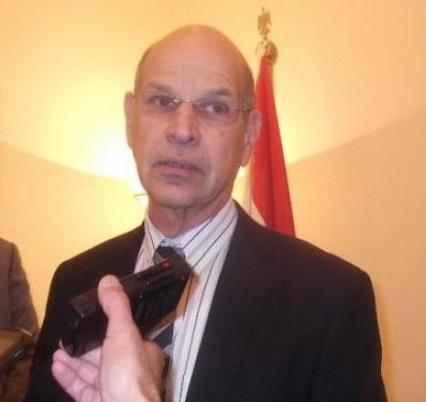Over the past weeks, Daily News Egypt has interviewed Egyptians from all walks of life and is reporting their expectations and demands for the year 2015, in an effort to contribute to an open debate about the challenges the country is facing.
This special issue comes at a critical time. Since the ousting of Islamist president Mohamed Morsi in July 2013, Egypt has witnessed a marked decline in freedom of expression.
With no parliament in place, the government has passed a series of decrees and regulations restricting freedom of speech, association, and assembly. These include the Protest Law, which forbids unauthorised public gatherings of more than 10 people; the law 84/2002, which states that NGOs cannot receive foreign funding without permission from the Minister of Social Solidarity and stipulates that the government has the authority to dissolve NGOs without a court order; and the October decree that allows those accused of crimes against the state’s “vital” facilities to be tried in military courts.
In addition, in 2014 the authorities arrested over 10,000 people on charges of “rioting” and “terrorism”, according to the Ministry of Interior. Courts have handed down hundreds of death sentences in mass trials that international rights groups labelled “blatantly unjust”. Muslim Brotherhood members and sympathisers, real or perceived, bore the brunt of the crackdown.
Meanwhile, the majority of Egyptian media uncritically support all government policies. In October, the editors in chief of several major Egyptian newspapers vowed to support the government’s anti-terrorism rhetoric and not to publish reports critical of the armed forces and the police. Make no mistake: avenues for expressing dissenting opinions are becoming increasingly sparse and narrow in today’s Egypt.
The government, of course, is concerned about the possibility of new popular upheavals. “The basic demands of the [25 January] revolution were bread, freedom, and social justice…We have yet to see anything,” as one Egyptian citizens poignantly put it in an interview with Daily News Egypt. Indeed, as the population continues to grow faster than GDP, the government must find ways to prevent the further deterioration of living standards.
Al-Sisi’s government has taken serious steps aimed at boosting economic growth. At the same time, the security apparatus has sought to repress popular demands, through the violent dispersal of demonstrations and the arrest of activists.
But repression is a dangerous tactic. It can generate frustration and apathy among large segments of society, while at the same time polarising the extremes, and pushing some towards more violent forms of contention.
In this context, the emergence of an armed insurgency in Sinai and the frequent attacks on police and army personnel throughout the country are signs of a new, more dangerous political era.
Regional developments further complicate the picture. Libya is in a state of civil war, overrun by heavily armed militias that combine political aims with cross-border smuggling and other criminal activities. One such group, in the eastern city of Derna, has pledged allegiance to the Islamic State of Iraq and the Sham (ISIS), and so has the main insurgent organisation in Sinai. These are daunting challenges—but restricting information and preventing public scrutiny is not going to solve them.
Daily News Egypt continues to believe in the social benefits of an open debate. For this reason, we chose to end the year 2014 with a series of demands from the people to the president of Egypt. We did our best to include all points of view—with the exception of those openly calling for violence. We spoke to workers, farmers, women, students, civil society activists, and journalists. We went to mosques and churches, and talked with worshippers. We interviewed business owners and entrepreneurs.
While we cannot claim that our sample is truly representative of the diversity and complexity of Egyptian society, we believe it is a valuable example of what the people want.
When the media speak with one voice, when people fear expressing their free opinion, the authorities run the risk of missing important information or letting abuses and corruption go unchallenged.
The people spoke, and Daily News Egypt is carrying their message.


